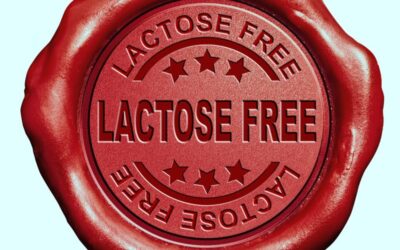What is IBS (irritable bowel syndrome)? Do I have IBS symptoms? Is there an effective IBS treatment? Through regular blogs, I aim to answer these questions. As an IBS Dietitian trained in FODMAPs, I have a wealth of experience to share and I have helped many, many people back to good health. Whether you have IBS-D (with diarrhoea symptoms), IBS-C (predominantly constipation symptoms) or a mixture of both, it’s important to identify your triggers. You can do this by following the temporary low FODMAP diet. However, this is tricky to do alone, so that’s where I can help.
What is IBS?
IBS can be difficult to talk about, but it’s much more common than you think. In fact, IBS affects one in five people at some stage of their lives. IBS is often described as a ‘functional gut disorder’. This is often treated with medication to try and manage the symptoms. However, drug treatment can often add to problems. The symptoms of IBS are very individual, but often include bloating, abdominal cramps with pain, excessive wind, diarrhoea and constipation to name just a few. IBS symptoms has an emotional knock-on effect, increasing stress levels, causing anxiety and embarrassment and significantly affecting a sufferers’ work and social life. See my website for blogs, recipes and other information to help with your IBS symptoms.
Should I see my GP?
You should see your GP if you have IBS symptoms. This is especially important if you’ve had a sudden change to your bowel habit or you experience rectal bleeding. Your GP may suggest some blood tests. These will be used to eliminate more serious reasons for your IBS symptoms, such as coeliac disease. Prescribed or over-the-counter medication can help, but often this just masks the symptoms, at best. Making some changes to your diet may help address the root causes.
Can simple changes to my diet help?
Eating regularly is important for a regular bowel habit and to provide the nutrients needed to stay healthy. Breakfast makes a great start to the day and I have some tasty recipe ideas. A high fibre cereal e.g. porridge, releases energy slowly, keeping us feeling satisfied until lunchtime. A variety of foods gives the broadest range of nutrients. So, don’t get stuck in a rut, try: varying your sandwich fillings; different fruits; and different combinations of foods. Protein is vital for growth and repair. Two portions per day of meat, fish, poultry, dairy or plant-based options keeps our bodies healthy. Five portions of fruit and vegetables gives a range of vitamins and minerals. These have many bodily functions, including support for a healthy immune system. Of course, limiting fatty and sugary foods always underlies a healthy diet, especially for those with an eye on their weight.
Are you drinking enough?
Most people need to up their game when it comes to fluids. We should aim to drink between 1.5-2 litres of fluid daily. Ideally, this should be water or squash, but tea and coffee can contribute to this total, although may have a diuretic effect. In the warmer weather we need a little more. If you exercise, you’ll also need more to replace losses due to perspiration. Try to make drinks interesting – add lemon, mint or ginger to boiled water or make your own infusions with herbs and spices. Make use of Apps to remind you of your fluid requirements. Or simply fill a bottle and aim to drink at least 2 per day in addition to your normal drinks to increase your fluid intake.
What is the low FODMAP diet?
Healthy eating advice is great for most, but for IBS symptoms you may need to take changes a stage further. So, read on… The low FODMAP diet is recommended by the National Institute of Health and Care Excellence (NICE) as an effective treatment for irritable bowel syndrome. FODMAP is an acronym for (the not-so catchy) Fermentable Oligo-saccharides, Di-saccharides, Mono-saccharides and Polyols. Put simply, they’re carbohydrates that are poorly absorbed by the gut. FODMAPs are fermented by bacteria in the large intestine, producing excess gas and water. Research has shown that foods high in these FODMAPs – which can be anything from baked beans to apples – contribute to the symptoms experienced by many IBS sufferers.
Can the Low FODMAP diet help you?
The low FODMAP diet has been shown to improve symptoms in over 75% of IBS sufferers. Many say that it’s been life-changing for them. So, there’s a good chance it can help if you’re struggling with IBS. However, it’s not a diet you need to follow for life. It’s a temporary diet to help you identify your triggers. The first phase of the diet is to eliminate foods known to be high in FODMAPs. When your symptoms have improved, these foods should be reintroduced to help you identify those that cause your IBS. Ultimately, you can return to a more normal diet. You can reinstate the foods you found to be ‘safe’. However, you’ll need to avoid or limit the small range of foods that you’ve found cause your symptoms. For more information on the process see my webpage on IBS treatment. It’s a tricky diet to try alone and the best results are seen in those who have help.
Help is at hand…
Cutting out groups of food isn’t recommended without expert guidance. Advice needs to be practical and to fit into your life, which is where an IBS dietitian trained in FODMAPs comes in! I have a wealth of experience in helping IBS sufferers. As an IBS Dietitian, I offer one-to-one advice, helping you through the phases of the low FODMAP diet. This will give you the confidence to finally manage your IBS. So, if you’d like to see if the low FODMAP diet is right for you, let’s chat. I’m based in Cardiff, but via virtual consultations I can work across the UK. Contact me for further information and to book a free initial telephone call. Usually only 3 sessions are necessary, so what are you waiting for? Give me a call today.
Disclaimer: This blog is for information purposes only and does not substitute for professional medical advice. Please consult your healthcare provider for personalised diagnosis and treatment of IBS.




